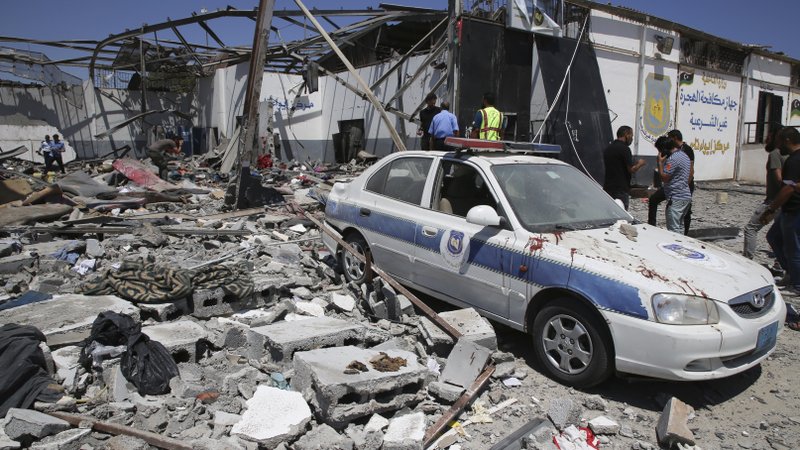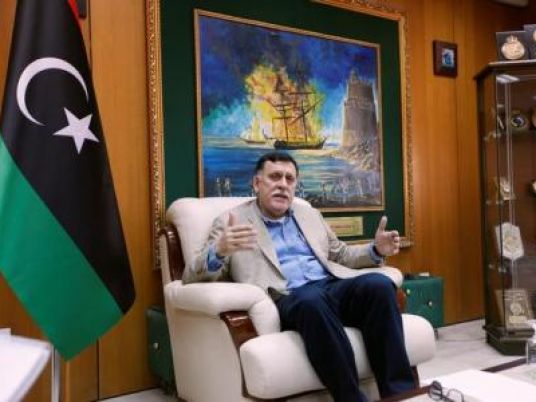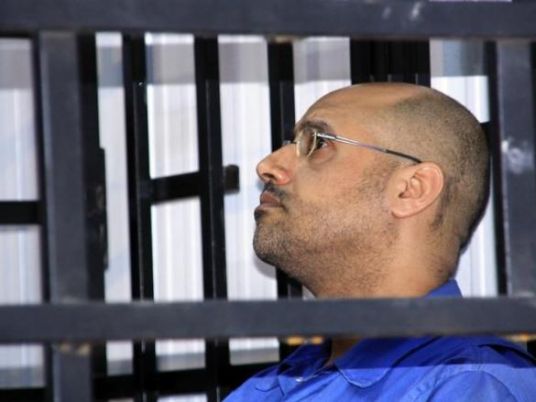Tripoli — Libyan strongman Muammer Qadhafi said he was determined to crush the month-old uprising against him, while at the UN, proposals for a no-fly zone to ground his warplanes met stiff resistance.
And as Qadhafi's army announced it would soon move against the rebel bastion of Benghazi, anti-aircraft batteries and heavy artillery opened up in the rebel stronghold.
"If this is a foreign plot, we will crush it; if it is a domestic plot, we will crush it," said Qadhafi, who has repeatedly blamed Al-Qaeda and Western powers for the revolt against his four decades of rule.
Late Tuesday, Qadhafi's army said it would soon move on the opposition stronghold of Benghazi, 1000km (600 miles) east of Tripoli, Libya's second city.
A statement addressed to its residents said: "The armed forces are arriving to ensure your security, undo the injustice done to you, protect you, restore calm and bring life back to normal.
"This is a humanitarian operation being undertaken in your interests, and is not aimed at taking revenge against anyone," it added.
It was not clear if the gunfire heard in Benghazi heralded an assault by loyalists: fireworks were also heard following rumours, later denied, that Qahdafi's Tripoli residence had been bombed.
There were conflicting reports too as to whether Qadhafi's troops had taken the town of Ajdabiya, the gateway to Benghazi, 160km to the south.
State television claimed earlier: "Ajdabiya is totally controlled and is being cleansed of armed gangs."
A French news photographer said loyalists had outflanked the rebel forces, cutting the road north towards Benghazi, amid scenes of chaos in the city.
But rebel spokesman Khaled al-Sayeh later denied Ajdabiya had fallen, "(It) is still in the hands of the revolutionaries," he said.
"Army units tried to get back into the town, but our forces drove them off," he told journalists in Benghazi.
Sayeh also denied that the road from Ajdabiya had been cut by loyalists.
"They have been liquidated," he said.
But in Tripoli, deputy foreign minister khaled Kaaim told AFP Qadhafi's forces had taken Ajdabiya.
"There are still some elements firing, and our forces are pursuing them. We are now beyond Ajdabiya — our forces are heading for Benghazi," he added.
Shelling and air strikes that pounded Ajdabiya earlier killed and wounded an undetermined number of people.
At the hospital, wounded and dead rebels were being brought in from the front line just a few kilometres away.
Some were accompanied by unhurt fighters, sparking fierce rows with doctors who accused them of leaving the battle, but the rebels said they were completely outgunned.
Earlier, rebels in Ajdabiya manned anti-aircraft guns pointing down the boulevard along which Qadhafi's troops were expected to appear.
Doctor Suleiman al-Obeidi said: "We want a no-fly zone and surgical strikes. We are civilians. What can we do against heavy weapons? Against tanks, (Russian-made) Grad rockets and warships?"
But leading powers meeting in Paris failed to back military intervention, turning instead to the United Nations.
Group of Eight foreign ministers "agreed that the UN Security Council should increase the pressure, including through economic measures, for Muammer Qadhafi to leave," said the French host, Foreign Minister Alain Juppe.
A drive by France and Britain to impose a no-fly zone over Libya failed to convince other European Union members in the G8 bloc, as well as the United States and Russia.
But London and Paris are pursuing their efforts at the Security Council.
New "paragraph by paragraph" talks on the two-part draft resolution are to be held on Wednesday, said Britain's envoy Mark Lyall Grant. But diplomats said no vote was likely before Thursday.
Lebanon, acting for the Arab League, proposed half of the resolution which calls for a no-fly zone to protect civilians.
The second part, drawn up by Britain and France, calls for toughened sanctions against the Qadhafi regime, including adding new names of individuals and entities face an asset freeze and travel ban, diplomats said.
China and Russia are leading opposition to the no-fly zone however.
The United States is very cautious and Germany favors putting new bite into the arms embargo, travel ban and assets freeze passed by the council on 26 February.
French UN Ambassador Gerard Araud stressed that time was of the essence.
"We are deeply distressed by the fact that the things are worsening on the ground, that the Qadhafi forces are moving forward extremely quickly and that this council has not yet reacted," he said.
Juppe meanwhile accused China of blocking Security Council action.
"If today we are stuck, it's not only because Europe is impotent, it's because at the Security Council, for now, China doesn't want any mention of a resolution leading to the international community's interference in a country's affairs," he said.
The White House defended President Barack Obama's reluctance to order US forces to mount a no-fly zone, following domestic criticism.
"I do not believe that the American people would want the US president to act unilaterally in a way to engage militarily without taking careful consideration of what the consequences of that would be," spokesman Jay Carney said.
Washington meanwhile announced sanctions on Libya's Foreign Minister Mussa Kussa and 16 state-owned companies.




